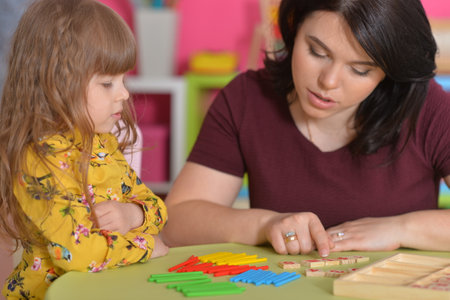Introduction to Play in Early Years Education
Play is at the heart of early childhood development, forming the bedrock of learning and growth during the formative years. In the context of early years education across the UK, play is not just a pastime but a crucial component that underpins the cognitive, emotional, social, and physical development of young children. The British early years curriculum, exemplified by frameworks such as the Early Years Foundation Stage (EYFS), places a significant emphasis on play-based learning, recognising its ability to foster curiosity, creativity, and resilience. As families and educators navigate various educational philosophies, including Montessori and other alternative approaches, understanding the foundational importance of play within these settings becomes essential. This introduction explores how play serves as a vital tool for exploration and discovery, shaping the way children interact with their environment and laying strong foundations for lifelong learning in the unique cultural landscape of the UK.
2. Principles of Montessori Education and Play
The Montessori method, widely embraced across the UK, is built on a foundation of child-centred learning. This approach recognises play as a vital tool for both cognitive and emotional development. Unlike traditional settings, Montessori environments are carefully prepared to allow children freedom within limits, encouraging them to make choices and pursue activities that naturally spark their curiosity.
Central to Montessori philosophy is the belief that hands-on experiences and purposeful play empower children to become independent thinkers. Instead of direct instruction, educators act as gentle guides, observing each child’s interests and facilitating access to materials that promote problem-solving and discovery. Through this process, learning becomes deeply personal and relevant, laying the groundwork for lifelong confidence and resilience.
| Montessori Principle | How Play Is Incorporated |
|---|---|
| Independence | Children select their own activities and work at their own pace, fostering decision-making skills. |
| Holistic Growth | Play-based tasks integrate social, emotional, physical, and cognitive development. |
| Respect for the Child | Educators value each childs choices in play, nurturing self-esteem and autonomy. |
This intentional use of play ensures that every aspect of a child’s growth is supported. In many UK Montessori classrooms, you’ll find children engaged in real-life tasks—such as pouring water or sorting objects—which not only build fine motor skills but also instil a sense of responsibility. As children experiment with these activities, they learn from both successes and mistakes, developing perseverance in a safe, supportive environment.
Ultimately, the Montessori method integrates structured play and hands-on exploration as key drivers for holistic education. This empowers children across the UK to develop confidence, independence, and a genuine love of learning from their earliest years.

3. Alternative Early Education Approaches
Alongside Montessori, the UK is home to a diverse range of alternative early education philosophies, each with its own unique take on the role of play in child development. Among the most popular are Forest Schools, Steiner-Waldorf, and Reggio Emilia approaches, all of which have gained increasing recognition for their child-centred ethos and playful learning environments.
Forest Schools
Originating in Scandinavia but enthusiastically embraced across the UK, Forest Schools offer children regular opportunities to learn through unstructured play in natural woodland settings. Here, play is not only encouraged but viewed as essential for developing resilience, creativity, and problem-solving skills. Children explore mud kitchens, climb trees, build dens, and observe wildlife—activities that foster a sense of independence and connection to nature. Practitioners act as facilitators rather than instructors, allowing curiosity and exploration to drive learning.
Steiner-Waldorf Education
The Steiner-Waldorf approach is also well established in Britain, with many parents drawn to its emphasis on holistic development through imaginative play. In these settings, play is deeply woven into daily routines: children engage in storytelling, puppetry, singing, crafts, and movement games. Toys are simple and made from natural materials, encouraging open-ended play that stimulates imagination and nurtures emotional wellbeing. Teachers focus on rhythm and routine while providing a warm, homely environment where children feel safe to explore at their own pace.
Reggio Emilia Approach
Reggio Emilia-inspired nurseries and preschools are becoming increasingly common across the UK. This philosophy regards children as capable co-constructors of knowledge who express themselves through a hundred languages—art, music, movement, and dramatic play among them. Play is both a tool for learning and a way for children to communicate their ideas. Classrooms are designed as creative studios filled with loose parts and open spaces that invite collaborative exploration. Practitioners document childrens play to reflect upon their interests and support project-based learning tailored to each group’s curiosity.
The British Context
What unites these alternative approaches within the UK context is a shared belief in the power of play as foundational to early childhood development. By giving children autonomy to explore and experiment in supportive environments—whether in woodlands or thoughtfully curated classrooms—these educational models honour the natural rhythms of childhood while laying strong foundations for lifelong learning.
4. Comparing Structured and Unstructured Play
In the UK, early years education frameworks place significant emphasis on the value of both structured and unstructured play, particularly within Montessori and other alternative educational settings. Understanding the delicate balance between guided activities and free play is essential for nurturing well-rounded development in young children. Both approaches have their unique roles and benefits, especially when adapted to British cultural norms and expectations.
The Montessori Approach: Guided Independence
Montessori classrooms in the UK are renowned for providing a carefully prepared environment where children can freely choose activities within set boundaries. This approach blends structure with autonomy, allowing children to develop at their own pace under the gentle guidance of educators. The teacher’s role is that of an observer and facilitator rather than a direct instructor, ensuring that learning is both purposeful and intrinsically motivated.
Alternative Models: Embracing Free Play
Other alternative approaches, such as Steiner Waldorf and Reggio Emilia, often prioritise unstructured play. In these settings, children are encouraged to explore their interests through open-ended activities, outdoor play, and imaginative scenarios. UK practitioners frequently integrate local cultural elements—such as nature-based learning in forest schools—to enrich the child’s experience and foster a sense of connection to their environment.
Balancing Structure and Freedom: A UK Perspective
Achieving an effective balance between structured activities and free play requires sensitivity to individual needs as well as alignment with national guidelines like the Early Years Foundation Stage (EYFS). Practitioners across Montessori and alternative models in the UK adapt their methods to respect each child’s rhythm while ensuring key developmental milestones are met.
| Aspect | Structured Play (Guided) | Unstructured Play (Free) | UK-Specific Practice |
|---|---|---|---|
| Role of Educator | Facilitator & Observer | Supportive Presence | Qualified Early Years Practitioners blending both roles |
| Environment | Prepared & Organised | Flexible & Open-ended | Use of indoor/outdoor spaces reflecting British weather & culture |
| Learning Outcomes | Cognitive & Practical Skills | Social & Emotional Growth | Balanced focus per EYFS framework |
| Cultural Integration | Curriculum-linked Activities | Nature & Community Play | Forest Schools, Local Festivals, British Storytelling Traditions |
Nurturing Holistic Development Through Play
The interplay between structured and unstructured play is central to high-quality early years education in the UK. By drawing on both Montessori principles of guided independence and alternative models’ celebration of free exploration, educators create rich environments where children can thrive emotionally, socially, and intellectually. This balanced approach ensures that British children receive a holistic foundation for lifelong learning.
5. Cultural and Policy Influences on Play
The landscape of early childhood education in the UK is deeply shaped by both cultural values and government policy, particularly in alternative settings like Montessori schools. The Early Years Foundation Stage (EYFS) framework sets statutory requirements for learning, development, and care for children from birth to five years old. While alternative approaches such as Montessori or Steiner Waldorf are distinct in philosophy, they must still align with EYFS outcomes. This dual influence fosters a unique environment where play is both structured by national standards and enriched by pedagogical diversity.
The Role of the EYFS Framework
The EYFS places strong emphasis on learning through play, recognising it as essential for healthy cognitive, physical, and emotional development. In Montessori and other alternative settings, educators interpret EYFS guidance through their specific educational lens—often blending child-initiated play with carefully prepared environments that promote independence and curiosity. This allows practitioners to remain compliant while honouring their distinctive ethos.
Cultural Values and Play-Based Learning
British culture traditionally values child-centred learning and personal exploration. Parents and caregivers often expect early years environments to provide opportunities for imaginative play, socialisation, and self-expression. This societal expectation aligns well with alternative education philosophies that prioritise holistic development over rigid academic targets in the early years.
Balancing Autonomy and Accountability
Alternative early education providers in the UK face the challenge of balancing autonomy in their teaching approaches with accountability to national standards. OFSTED inspections and local authority oversight require evidence that children’s progress is being tracked effectively—even when much of the learning takes place through unstructured play. As a result, practitioners must be adept at documenting play-based learning outcomes without compromising the integrity of their pedagogical approach.
Overall, UK policies and cultural attitudes work together to create a supportive environment for play across different educational models. The interplay between statutory frameworks like the EYFS and alternative philosophies ensures that British children benefit from diverse, high-quality early experiences rooted in both tradition and innovation.
6. Benefits of Play-Based Learning for British Children
Within UK early years settings, play-based learning is increasingly recognised as a vital foundation for children’s development. Approaches like Montessori and alternative education models emphasise the role of play in nurturing well-rounded young learners. Through purposeful and guided play, British children experience a range of cognitive, emotional, and social advantages that prepare them for later life.
Cognitive Development
Play stimulates curiosity and critical thinking, both central to early learning in the UK. Activities such as building blocks, imaginative games, and sensory exploration encourage problem-solving skills and foster independence. Montessori classrooms, in particular, use hands-on materials that allow children to experiment and discover at their own pace—an approach mirrored in many alternative settings across Britain. This focus on active engagement helps sharpen memory, attention span, and early literacy or numeracy skills.
Emotional Wellbeing
Engaging in play provides a safe space for children to express feelings and navigate challenges. Whether acting out real-life scenarios or working through conflict during group games, children learn to manage emotions and build resilience. UK educators often observe that those involved in regular play-based activities develop greater confidence and self-esteem, essential traits for positive mental health as they transition into primary school environments.
Social Skills
Play is a natural context for developing cooperation, communication, and empathy. In mixed-age groups common to Montessori schools or nature-based nurseries found throughout the UK, children learn from one another by sharing resources, taking turns, and negotiating roles. These experiences not only enhance language abilities but also lay the groundwork for respectful relationships and community participation—core values within British society.
The UK Context
In line with the Early Years Foundation Stage (EYFS) framework, play-based learning aligns closely with national guidance on child development. British parents increasingly seek out nurseries and preschools that offer rich play opportunities because they see first-hand the benefits: improved school readiness, emotional intelligence, and adaptability. As research continues to highlight the long-term gains of playful education, it’s clear that Montessori and alternative approaches are shaping a future generation of capable, compassionate young people in the UK.


